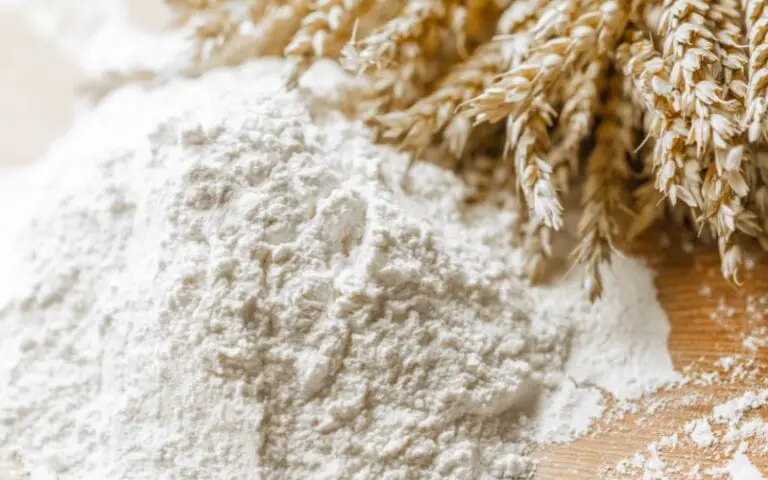This is What Happens If You Eat Bad Butternut Squash!
Last updated on October 26th, 2022 at 05:19 pm
Butternut squash is a fruity delicacy that offers many health benefits when it is good. These winter fruits are healthy and delicious.
You can cook using different recipes depending on your choice. However, like other fruits, they go bad after a few days.
What happens to it when it goes bad? Also, what happens if you eat bad butternut squash?
Food poisoning is one of the possible outcomes of eating bad butternut squash. The effect of food poisoning can range from mild vomiting to severe nausea. It is also possible to have a toxin infection. It is best to cook and eat the fruit while it is fresh.
Can I get Sick from Eating Bad Butternut Squash?

Eating bad butternut squash can lead to sickness, which can be extreme in some circumstances.
Consuming this fruit when it loses its taste is not ideal. For one, the flavor that makes it delicious is gone.
You also expose your digestive system to food poisoning. These effects are why it is best to avoid eating fruit when it is bad.
A healthy dish of butternut squash in its various cooking methods has a lot of benefits ranging from immune system boost to loss of excess fat.
However, it has the opposite effect on your body when it spoils. When butternut squash goes bad, it produces different chemical components, including toxins.
Consumption of these chemicals leads to sickness and can be severe if you have a weak immune system.
Does Bad Butternut Squash cause Toxic Squash Syndrome?
You can get toxic squash syndrome from consuming bad butternut squash.
It is a serious health complication that can keep you from being physically active for weeks.
This syndrome is a type of food poisoning that has various symptoms. The tricky part is that these symptoms can also result from other infections or syndromes.
Hence, you might not suspect toxic squash syndrome as the reason for these symptoms because they are familiar.
Toxic Squash syndrome symptoms include:
- Vomiting
- Dizziness
- Diarrhea
- Abdominal Pain
- Nausea
You will agree that these symptoms are also common with other diseases. However, their effects are usually more severe when it is a result of toxic squash syndrome.
In some rare cases, there were reports of hair loss at various body parts due to this syndrome. It took months after the treatment for the hair to grow.
This syndrome’s effect helps show just how dangerous it is to eat spoiled butternut squash.
How does Butternut Squash cause Toxic Squash Syndrome?
Toxic squash syndrome is a result of cucurbit poisoning. This poisoning is due to over secretion of cucurbitacin E in butternut squash.
Ideally, this toxin is only present in small, non-threatening quantities in domestic butternut squash.
However, when the fruit goes bad due to prolonged storage, the level of these toxins increases. Eating just a few spoons can lead to toxic squash syndrome.
How to Avoid Toxic Squash Syndrome?
You can still enjoy your fruit and avoid this severe syndrome simultaneously.
The simple trick to avoiding toxic squash syndrome is to ensure a reduced level of toxin in your squash.
Suppose you can keep the toxins in check. In that case, you can continue enjoying your different butternut squash recipes without a problem.
#1. Buy and Eat only Local Butternut Squash
Butternut squash growing on domestic farms tend to have a lower concentration of the toxin “Cucurbitacin E.” Hence, consuming local produce keeps you safer.
Because this fruit is seasonal, it is best to buy only during its season. This period is usually between October to February.
Buying this fruit outside this period can expose you to foreign products with a higher toxin level.
#2. Don’t Consume Bad Butternut Squash
This option is quite apparent at this point. Once you notice that your fruit has gone bad, whether cooked or uncooked, it belongs to the trash can.
A few spoonfuls or a bite of squash with high toxin levels is potent enough to cause trouble.
Quickly visit a doctor for proper treatment if you have consumed bad butternut squash. It is best to do so before the effect becomes severe.
How long is Butternut Squash Good for in the Fridge?
Cooked butternut squash is good in the fridge for four to five days. The cool environment helps to reduce the formation of mold or the production of toxins.
Hence, the refrigerator gives you a few extra days to store your delicacies.
When stored on a countertop at room temperature, you only have a day or two at maximum before it goes bad.
But using the fridge for storage is an excellent way to add a few days to that period. As long as the temperature in the refrigerator is stable, you have no worries.
If you wish to keep the cooked butternut squash for an extended period, then freezing is the best option. The cooked versions of this fruit take different forms.
It is cooked, baked, fried, or smashed into the blended sauce. This difference in forms also means the effect of freezing will vary.
However, the product can last up to three months in its frozen state. Yes, more than 90 days, and it won’t lose its quality, taste, and texture.
When freezing, make sure to keep them in an airtight condition. Examples of storage containers include Ziploc bags.
The fruit can go on for months if it remains frozen. This storage method allows you to keep the fruit beyond its season.
How does Bad Butternut Squash Taste?
Taste is a simple way to know if your butternut squash has gone bad. A mushy or bitter taste with a change in texture proves that the cooked fruit has lost its quality.
Taste is your best method of determining if the fruit is still okay for consumption. A mushy or bland taste is usually due to the onset of mold formation.
A bitter taste, on the other hand, tells you that the toxin level is increasing. Change in taste signals discarding the meal without consumption.
The change in taste might not be evident if your stored dish only has butternut squash as a sauce or a small portion once you notice any slight difference in taste and texture.
Sometimes mold does not appear on bad butternut squash, but it has gone bad.
Hence, you should not rely too much on appearance. The taste test is a better method.
How Long Does Uncooked Butternut Squash Last in the Refrigerator?
Uncooked butternut squash can last up to four days in the refrigerator. But, this is not the best storage place for the type of fruit.
However, if you must use the fridge, there are some essential points to remember. Squash, when it is uncooked, is just like any other fruit.
Hence, they don’t go bad if the environment is cool and dry. A refrigerator does not provide a dry climate that butternut squash needs for prolonged storage.
This storage condition shows the big difference between cooked and uncooked squash. Hence it is better to store it in the fridge after cooking.
There are a few points to note when storing your uncooked butternut squash in the refrigerator. These points or tips help you keep the fruit in shape.
They are as follows:
- Peel the dry outer layer and scoop out the seeds inside the fruit.
- Cut the fruits into cube shapes or any other preferred shape.
- Place the fruits in a dry container before placing them inside the refrigerator to avoid water spills and ice formation. Water spill causes rotting faster than expected.
- It is best to store using airtight containers. These containers help prevent the work of germs and bacteria in the store.
- Do not store ripening fruits such as apples and bananas with your squash.
The production of toxins means your fruits go bad faster than expected. Ripening fruits release a chemical called ethylene.
Ethylene can speed up toxin formation in butternut squash. These tips help store the fruit for a few days before using it.
Note again that keeping uncooked butternut squash in the fridge is not ideal—table summarizing the various storage methods and average period.
| Type | Room temperature | Refrigerator | Freezer | Barn |
|---|---|---|---|---|
| Cooked Butternut Squash | One to Two days | Four to Five days | Three months | – |
| Uncooked Butternut Squash | Four to Five days | Three to four days | – | Two months |
How can I Keep Butternut Squash from Rotting?
Proper storage is the best way to ensure that the butternut squash remains good.
You can avoid rotting if you keep the fruit in a condition that prevents the action of germs.
When you store butternut squash in numbers, all it takes to spoil the entire collection is one fruit going bad. The infection spreads to others in no time.
This spread is why many have issues storing the fruit for a prolonged period. But some options and habits can help prevent rotting in butternut squash.
#1. Selecting Good Fruits
The most important way to prevent rotting is to select winter squash that is good and new.
Proper selection when shopping is essential. It is best to check the outer layer for scratches or injuries.
Lightweight butternut squash means it is yet to mature properly. Once you have good fruits, storage becomes easy. You can use this tip to pick the best.
#2. Storing in Dry Condition
A store/ barn with a temperature of 50°F to 55°F with an average humidity of 70% is ideal for storing your fruits. Ensure it is an area with direct sunlight and constantly dry.
This environment prevents rotting and keeps your fruit good for up to three months.
Summary
A bad butternut squash, whether cooked or uncooked, is terrible for your health. Eating the fruit in its bad state reduces the taste quality and can lead to sickness.
This change in taste and appearance can help to determine if it is bad. It is best to avoid eating bad butternut squash.






